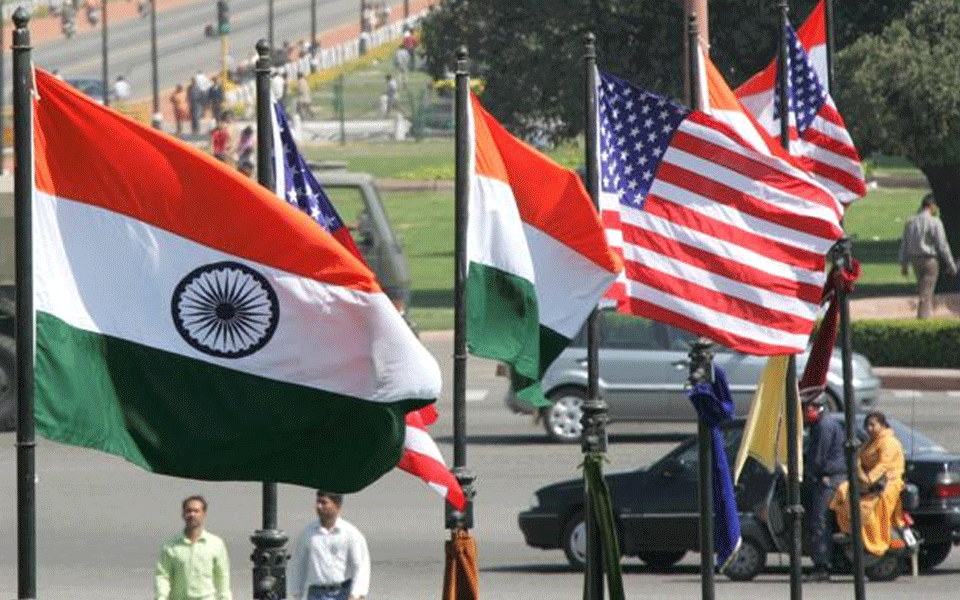Washington: A group of 25 influential American lawmakers has urged the US Trade Representative not to terminate the GSP programme with India after the expiry of the 60-day notice on Friday, saying the country's companies seeking to expand their exports to India could be affected.
The Generalized System of Preference (GSP) is the largest and oldest US trade preference programme and is designed to promote economic development by allowing duty-free entry for thousands of products from designated beneficiary countries.
On March 4, President Donald Trump announced that the US intends to terminate India's designations as a beneficiary developing country under the GSP programme. The 60-day notice period ends on May 3.
On the eve of the end of the notice period, the 25 US lawmakers made a last-ditch effort to convince the Trump administration from going ahead with its decision.
The 25 members of the US House of Representatives in a passionate letter urged US Trade Representative Robert Lighthizer to continue negotiating a deal that protects and promotes jobs that rely on trade both imports and exports with India.
They argued that terminating GSP for India would hurt American companies seeking to expand their exports to India.
"India's termination from GSP follows its failure to provide the United States with assurances that it will provide equitable and reasonable access to its markets in numerous sectors," Trump had said in a letter to Congress, providing a notice of his intent to terminate the designation of India as a beneficiary developing country under GSP programme.
In his letter, Trump said that he was determined that New Delhi had "not assured" the US that it would "provide equitable and reasonable access" to the markets of India.
"I will continue to assess whether the Government of India is providing equitable and reasonable access to its markets, in accordance with the GSP eligibility criteria," he wrote. The USTR through a simple notification in federal register can formally terminate GSP benefits to India.
Expressing concern over such a move, the lawmakers said that no party in the United States or India would benefit from terminating GSP benefits.
"American companies that rely on duty-free treatment for India under the GSP will pay hundreds of millions of dollars annually in new taxes. In the past, even temporary lapses in such benefits have caused companies to lay off workers, cut salaries and benefits, and delay or cancel job-creating investments in the United States.
"Terminating the GSP for India similarly would hurt, not help, companies seeking to expand their exports to India. Any progress made toward resolving issues over the last year of GSP negotiations seems unlikely to take effect if India is removed from the programme," the lawmakers said. "It would be a step back, not forward. Continuing negotiations is the only way to gain new market access for US exports to India," said the letter written by these lawmakers.
Reaching a comprehensive solution that benefits both the US import and export interests is further complicated by the upcoming elections in India, they said.
Noting that the 60-day notice period expires in the middle of Indian elections that run from mid-April to late-May, the Congressmen said that it will be up to India's next government to resolve outstanding issues with the US, but seating that government and restarting negotiations also requires time.
"A decision to terminate GSP in the midst of the elections risks politicising the issues further, with potentially negative consequences for broader relations with an important ally," the Congressmen wrote.
The Congressmen urged Lighthizer not to terminate any GSP benefits until there is an opportunity to negotiate with India's next government.
"The alternative is higher trade barriers all around, which would hurt American companies and workers that depend on strong two-way trade between the US and India," they warned.
Let the Truth be known. If you read VB and like VB, please be a VB Supporter and Help us deliver the Truth to one and all.
Dubai: Smoke was seen rising from an area near the United States Consulate in Dubai, according to witness accounts cited by Reuters.
There was no immediate official confirmation on the extent of damage or whether there were any casualties in the incident.
Earlier, the US embassy in Riyadh, Saudi Arabia’s capital, was also attacked. Authorities reported damage to the premises, but no casualties were recorded.
The developments come amid heightened tensions in the region, with Iran continuing to target US interests in the Middle East following deadly attacks launched on Saturday by Israel and the United States.
Near US embassy in Dubai pic.twitter.com/z5VTZNVxNO
— Sahil Shah (@thesahilsshah) March 3, 2026





